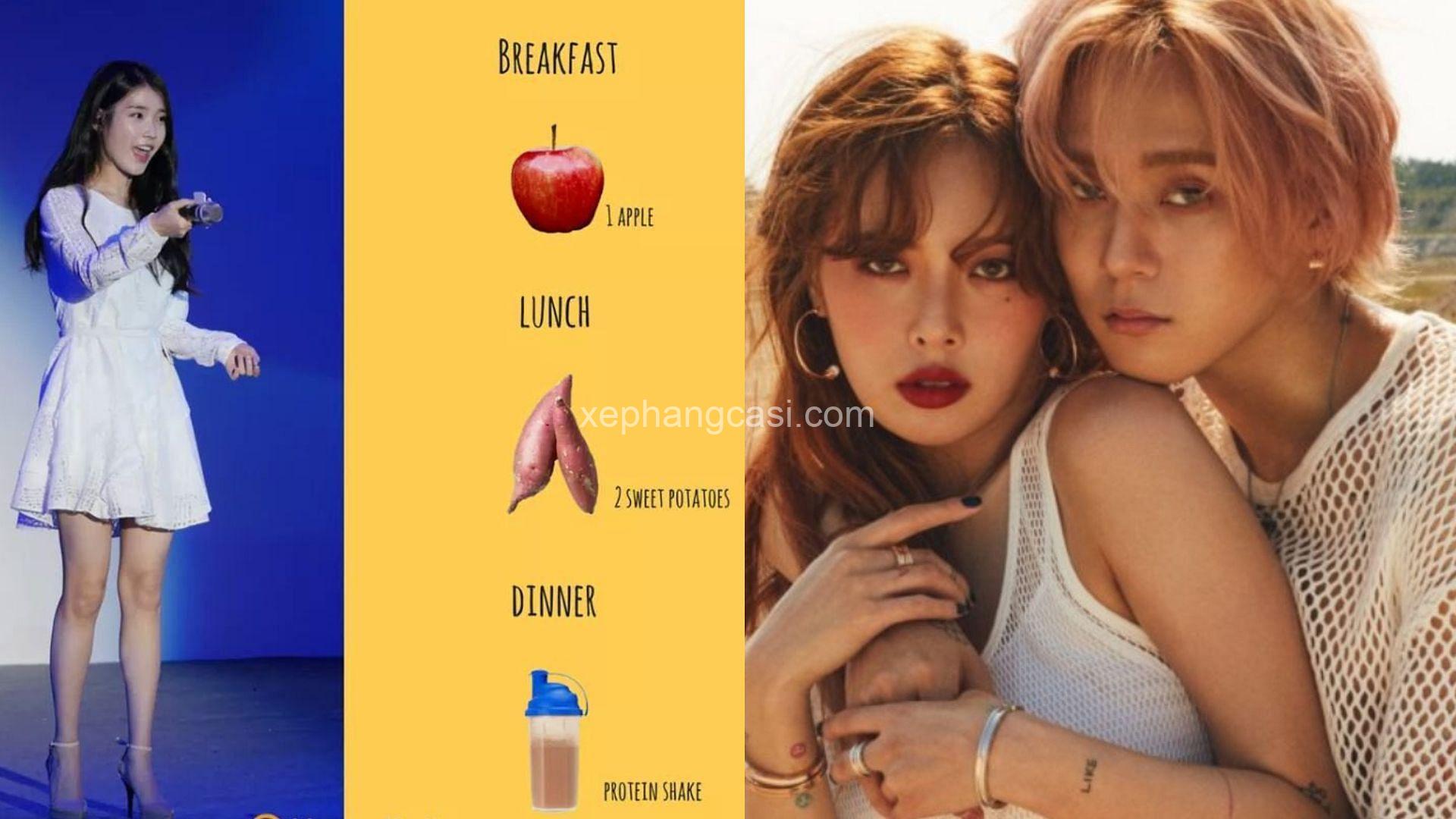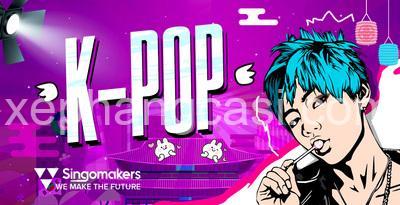News about K-pop idols
Unspoken Rules in K-Pop: Training, Idol Life & Industry Secrets
Unspoken Rules in K-Pop: Training, Idol Life & Industry Secrets. In today’s article, xephangcasi.com will explore with you in the most detailed and complete way. See now!
The Rigorous World of K-Pop Training: From Trainee to Idol
The road to becoming a K-Pop idol is anything but easy. It begins with an intense and demanding training program that can last anywhere from two to five years. Trainees dedicate themselves to mastering the three core skills: singing, dancing, and rapping. Their days are filled with rigorous rehearsals, vocal lessons, and intense dance practices, pushing them to their limits.
The training environment is highly competitive, fueled by a “survival of the fittest” mentality. Only the most talented and dedicated trainees stand a chance of making it to debut. The pressure to excel is immense, and the constant competition can create a stressful and emotionally taxing environment.
Trainees often experience significant psychological and physical toll. Long hours of practice and relentless pressure can lead to exhaustion, burnout, and even injuries. They are expected to be disciplined, obedient, and always strive for perfection. The training process, while essential for developing skills, can also be a challenging journey that tests the resilience and determination of aspiring idols.

Idol Life: Promotions, Image, and the Agency’s Influence
Once trainees finally make their debut, the relentless pace of the K-Pop industry doesn’t slow down. Idols are thrust into a nonstop promotion cycle of comebacks, music shows, fan meetings, and other promotional activities. Their schedules are packed, leaving little time for personal life or rest.
Maintaining the perfect image is paramount in the K-Pop industry. Idols are meticulously crafted and presented as role models, with their appearance, style, and behavior carefully managed by their agencies. They are expected to project a positive and appealing persona, even in their personal lives.
The agency plays a central role in shaping the idol’s career and image. They have significant power, making decisions about the group’s music, promotions, and public image. The agency-idol relationship is often described as a symbiotic one, with the agency providing opportunities and resources, and the idol contributing their talent and hard work. However, the power imbalance can also lead to challenges, as agencies exert significant control over their idols’ lives and careers.
The Complicated Idol-Fan Relationship: Fandoms, Expectations, and Boundaries
The K-Pop industry is built on a unique and powerful relationship between idols and their fans. K-Pop fandoms are known for their passionate dedication, going to great lengths to support their favorite groups. They stream music, attend concerts, and participate in online fan communities. Fan support is crucial for an idol’s success, and their unwavering dedication can propel groups to new heights of popularity.
Idols are expected to engage with their fans, maintain a positive image, and express gratitude for their support. This relationship can be incredibly rewarding, fostering a sense of connection between idols and their fans. However, the expectations placed on idols can also be demanding. They are constantly under scrutiny, and even minor missteps can trigger intense backlash from fans. Navigating the line between interacting with fans and protecting their personal lives can be a delicate balancing act.
The Darker Side of the Industry: Mental Health, Exploitation, and Competition
Despite the bright lights and passionate fan base, the K-Pop industry has a darker side. The intense pressure to maintain a perfect image, the demanding schedules, and the constant competition can take a toll on mental health. Many idols struggle with anxiety, depression, and burnout. However, there is a stigma surrounding mental health in the industry, making it difficult for idols to seek help. Limited resources and the fear of negative repercussions can deter them from seeking necessary support.
The power imbalance between idols and agencies can also lead to exploitation and abuse. The lack of legal protection for idols, coupled with the high stakes of the industry, can create vulnerabilities. There have been instances of sexual harassment, emotional abuse, and exploitation by agencies or individuals seeking to profit from the idol’s popularity.
Competition is an intrinsic part of the K-Pop industry. Groups constantly strive to outdo each other and stay relevant in a highly competitive landscape. This intense competition can lead to animosity between groups and their fans, fueling a toxic environment. The need to constantly prove themselves can create immense pressure and anxiety for idols.
Moving Towards a More Ethical K-Pop Industry: A Call for Change
The issues of mental health, exploitation, and competition highlight the need for a more ethical and sustainable K-Pop industry. There is a growing awareness of the importance of prioritizing mental health. Agencies and industry stakeholders are starting to recognize the need for greater support and resources for idols struggling with mental health issues.
Protecting idol rights and promoting transparency are also crucial for a healthier industry. Stronger contracts and legal protections are necessary to ensure fairer treatment and prevent exploitation. The industry needs to move towards greater accountability and transparency, addressing power imbalances and fostering a more ethical environment.
Cultivating a healthy fan culture is essential for the well-being of idols. Fans can play a vital role in fostering a more supportive and respectful environment. Encouraging positive online interactions, promoting understanding, and condemning online harassment can create a healthier and more sustainable fan culture.
The Future of K-Pop: Striving for Sustainability and Ethics
The future of K-Pop lies in finding a balance between success and sustainability. The industry needs to address the issues of mental health, exploitation, and competition to ensure a more ethical and healthy environment for idols. Moving beyond the unspoken rules and creating a more equitable and supportive framework for the industry will ultimately benefit both idols and fans, ensuring the longevity and continued success of the K-Pop phenomenon.
FAQs: What are the Unspoken Rules in the K-Pop Industry?
What is trainee life like in the K-Pop industry?
Trainee life is a demanding and highly competitive process. It typically lasts two to five years, and trainees are immersed in a rigorous schedule of singing, dancing, and rapping lessons. They face constant pressure to excel, and only the most talented and dedicated make it to debut.
What kind of power do agencies have over K-Pop idols?
Agencies exert significant power over idols, controlling their image, career, and finances. They make decisions about the group’s music, promotions, and public image. While agencies provide opportunities and resources, they also impose contractual obligations that limit idol freedom and autonomy.
How does the industry pressure affect mental health?
The intense pressure to maintain a perfect image, the grueling schedules, and the constant competition can take a significant toll on mental health. Many idols struggle with anxiety, depression, and burnout, but the stigma around seeking help often prevents them from seeking necessary support.
What can be done to improve ethical standards in the K-Pop industry?
Improving ethical standards requires a multi-faceted approach. This includes prioritizing mental health, strengthening contracts and legal protections for idols, promoting transparency and accountability within agencies, and fostering a healthier and more supportive fan culture.
Conclusion
The K-Pop industry is a complex and fascinating world, with a set of unspoken rules that shape the careers and lives of its participants. Understanding these rules, the challenges they present, and the need for a more ethical and sustainable future is crucial for appreciating the full scope of this global phenomenon. Be sure to share your thoughts and experiences in the comments below! You can also visit xephangcasi.com for more insightful articles and resources on a wide range of topics.
Susan Elizabeth Rodriguez
Author of xephangcasi.com
